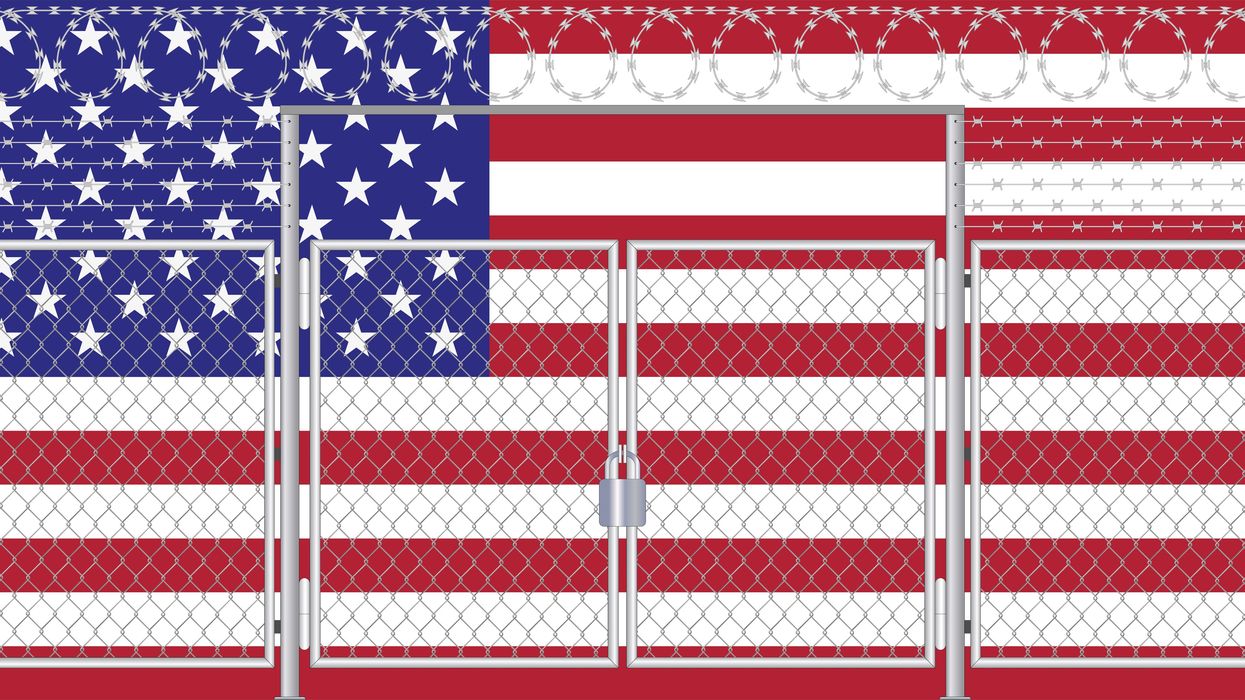Anderson edited "Leveraging: A Political, Economic and Societal Framework," has taught at five universities and ran for the Democratic nomination for a Maryland congressional seat in 2016.
It is useful to think about the presidential election with a framework that emphasizes the old tension between isolationism and interventionism.
In many ways, the Republicans represent the isolationist camp, and the Democrats represent the interventionist camp. Of course, the exact words that are used to label the camps will not be satisfactory to everyone: right vs. left, libertarian vs. progressive, individualist vs. communitarian. Yet the old isolationist/interventionist theme has divided the nation for nearly 250 years.
Since its founding, America has struggled with the desire among some to be isolated from the rest of the world and the desire among others to be integrated with the rest of the world. We were, in the early years of the republic, quite isolated from the rest of the world by virtue of our geographic location. The colonists left the Old World to get away from it and were determined, and the revolutionaries among them wanted to create a new kind of country.
Both world wars brought into sharp focus our pull toward isolationism because the public did not want to be engaged in European conflicts. We entered World War I in 1917 and World War II in late 1941, and in each case our presidents, Woodrow Wilson and Franklin Roosevelt, had to work for years to prepare Congress and the people themselves for U.S. involvement in overseas wars.
Our tension between isolationism and intervening to make the world safe for democracy is quite evident today, since we struggle over what America should do regarding Russia and Ukraine, Israel and the Palestinians, Iran, China, North Korea and NATO.
A second tension is between conservative versions of capitalism — which favor free markets, modest forms of regulation and minimum forms of redistribution of wealth and income — and versions of a mixed economy and social democracy that rely on major forms of government intervention into the private sector.
Progressives and liberals in the United States, ranging from President Joe Biden and Vice President Kamala Harris to Sens. Elizabeth Warren (D-Mass. and Bernie Sanders (I-Vt.), stand for a strong interventionist government regarding both domestic and foreign policy. Conservative politicians ranging from former President Donald Trump to Sen. Tom Cotton (R-Ark.), Sen. Lindsey Graham (R-S.C.) and Speaker Mike Johnson (R-La.) favor an America that, though it should defend countries like Israel, should not get too involved in the affairs of most countries and should be minimally interventionist in economic policy as well.
Government, for the conservatives and Trumpians, is not designed to implement major economic or social programs. It is, however, interventionist when it comes to protecting individuals from intrusions by the government, notably regulation of guns and programs that would, in their view, violate the basic gender or sexual identity of a person, especially young people. At its most extreme, some MAGA supporters support a strongman leader who would psychologically and physically force opponents to conform.
The battle between isolationism and interventionism is confusing to say the least. While conservatives generally are in favor of less intervention in the economy when it comes to providing equal opportunity for all, they tend to be interventionist when it comes to various social issues, including their belief that the government should intervene in women’s reproductive rights.
The overall tension typically relies on two different models of citizenship. The isolationist camp favors a view of persons as independent from each other with capacities to be self-determining beings. The interventionist camp favors a view of persons as fundamentally social beings, who, though they are capable of being self-determining, must rely on a strong interventionist federal government for the means — ranging from food and housing to information technology and health care — to realize their potential.
The debate will certainly not be solved soon and certainly will continue well beyond this election. It would be helpful if the media brought this historic tension to the fore. Hitting the public, especially in debates, with policy contrasts one after another is useful but also exhausting for citizens. The battle needs to be elevated to a more illuminating level.
However, there is one component of the isolation-vs.-intervention theme that is not debatable: No one should intervene in the rule of law or free and fair elections. Any candidate who suggests otherwise imperils our democratic republic and should not be trusted with our sacred vote.
We all should be partisan about only one thing: democracy.




















Trump & Hegseth gave Mark Kelly a huge 2028 gift